- HOME
- About
- Creating a society where all kinds of people can interact through music Workshop Workshop! Convivial Project
About
Our Focus at the Tokyo Bunka Kaikan
Creating a society where all kinds of people can interact through music
Workshop Workshop! Convivial Project
YouTube
YouTube
The Tokyo Bunka Kaikan sets one of its goal to achieve a convivial society in which everyone can live a ‘100-year life’ with thriving spirits. To make this happen, we keep bringing opportunities for people to share their joys and reasons for living through music and the arts.
The Convivial Project is aimed at realizing a pluralistic symbiotic society through the arts. Its objective is for diverse people to enjoy participating together in musical and artistic activities regardless of their disability, age, or social background. In addition to performances and workshops at the Tokyo Bunka Kaikan, we also actively engage in outreach projects at special needs schools and social welfare facilities for the elderly, as well as collaborations with cultural facilities in Tokyo, local communities, and cultural organizations overseas. We also take steps to develop specialized talent and evaluate our projects.
Since 2017, the Tokyo Bunka Kaikan has been involved in activities focused on social inclusion. We aim to provide opportunities for all people, regardless of age, physical or social disability, to participate in music appreciation and music creation experiences, and to forge an environment in which a diverse range of people can independently participate in new cultural creation. We contribute to improving people's quality of life and realizing a symbiotic society while confronting social issues, capitalizing on the ways the arts offer creativity, cooperation, and participation.
Currently, we are mainly engaged in the following activities:
⁃ Relaxed Performance that everyone can enjoy regardless of generation or disabilities
⁃ Workshops and concerts at special needs schools and social welfare organizations, covering sign language and English
⁃ Training musicians by letting them learn from pioneering examples in Japan and overseas
⁃ Workplace accessibility personnel training
⁃ Expanding discussion forums and activity platforms, collaborating and interacting with various organizations such as local governments, universities, and non-profits
⁃ Impact measurement for our projects
- Guidebook to the Art Activities leading to Social Inclusion
- Tokyo Bunka Kaikan Relaxed Performance
- Program for Special Needs Schools
- Music Workshops at facilities for senior citizens and social welfare organizations
- Lectures and training for the art activities leading to social inclusion
- Validation of music workshops for senior citizens
- Tokyo Bunka Kaikan 60th Anniversary Forum
- Technology with Music “Blinkin’ Beats—The World of Rhythms You Doodle with Sounds and Light”
Join our Convivial Project email newsletter: Convivial News (only in Japanese). Sign up from the button below!
Sign Up Here(linked to external website MAGMAG)
Guidebook to the Art Activities leading to Social Inclusion
This guidebook illustrates the subjects we need to understand on practicing those activities with a focus on the performing arts. The guidebook is mostly about discussions and lectures that we edited from our previous programs "Lectures and training for the art activities leading to social inclusion." We also tried verbalizing the knowledge that has not been told in words, which is a practitioner's perspective and philosophy (things focused on the most during the activities). By doing this, we set our sights on public cultural facilities to consider their way of working on art activities with a concentration on social inclusion to reevaluate and redefine such activities.
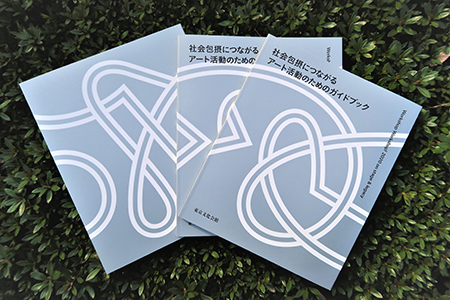
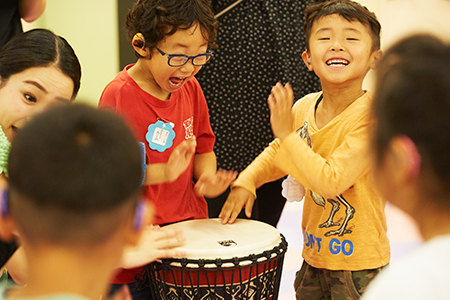
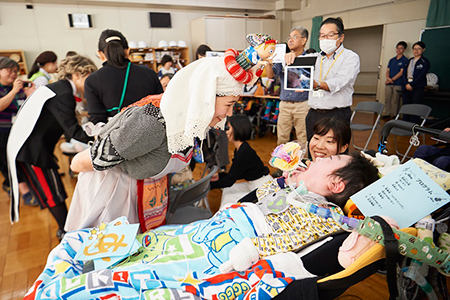
Tokyo Bunka Kaikan Relaxed Performance
Relaxed performances, different from other regular stage performances, are designed for the audience to enjoy the program without requiring total silence or darkness. Full of friendly twists are welcoming you to enjoy music with all kinds of people, including first-time classical music concert-goers, individuals with autism spectrum disorder, developmental disabilities, and so on, who feel insecure at concerts in music halls.
⁃ The auditorium light will not go completely dark.
⁃ The audience can leave the auditorium during the performance for chill-out.
⁃ The detailed program and instructions for families and caregivers will be posted on the dedicated webpage 3 weeks before the performance.
⁃ Japanese sign languages, hearing loop, and body-sensible acoustic devices are available.
⁃ The talk during the performance is provided in Japanese.
⁃ All patrons aged 4 years and above can attend this performance.
You can also enjoy the past “Tokyo Bunka Kaikan Relaxed Performance” online anytime and anywhere with the streaming video.
- Tokyo Bunka Kaikan Relaxed Performance 2020
- Tokyo Bunka Kaikan Relaxed Performance 2021
- Tokyo Bunka Kaikan Relaxed Performance 2022
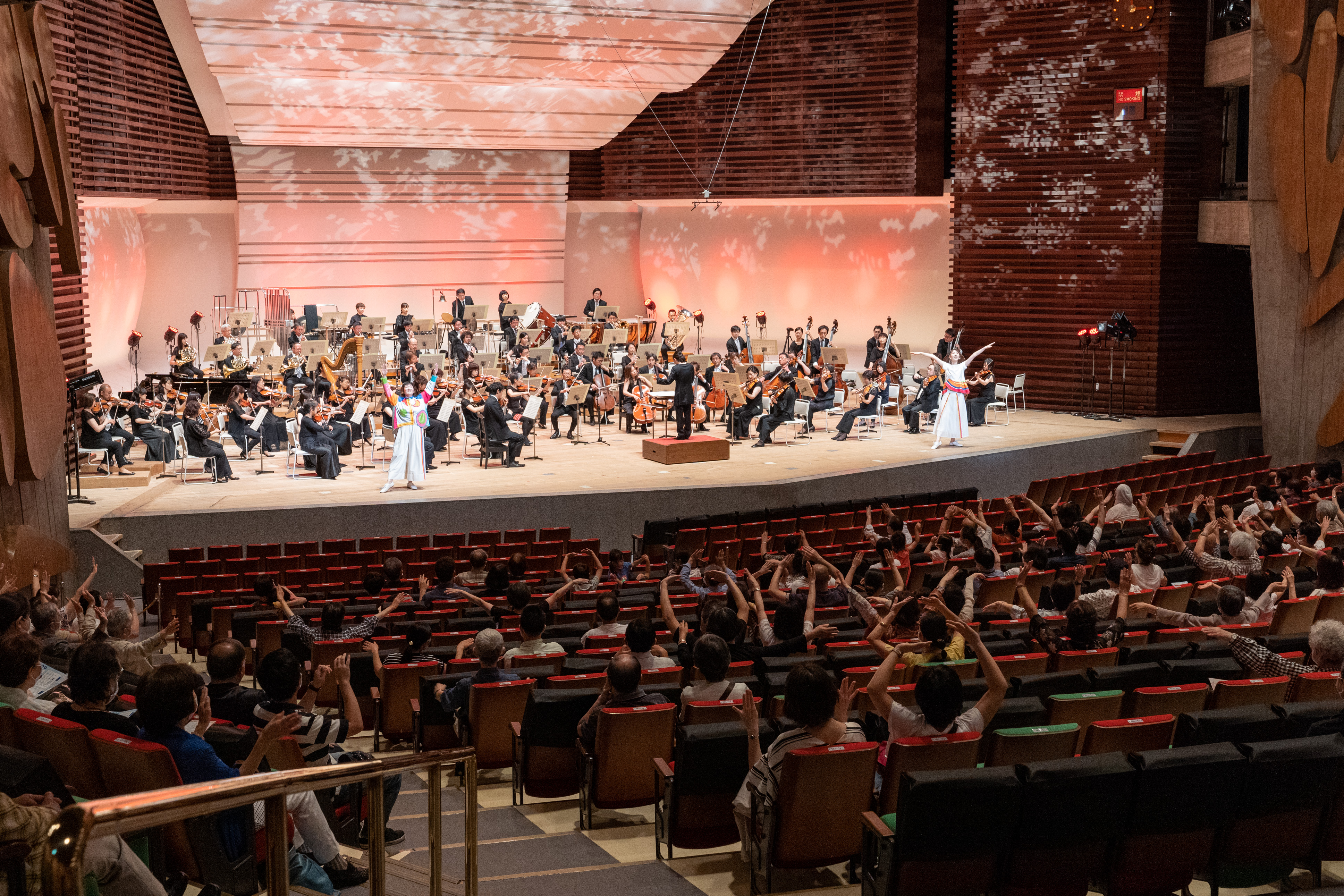
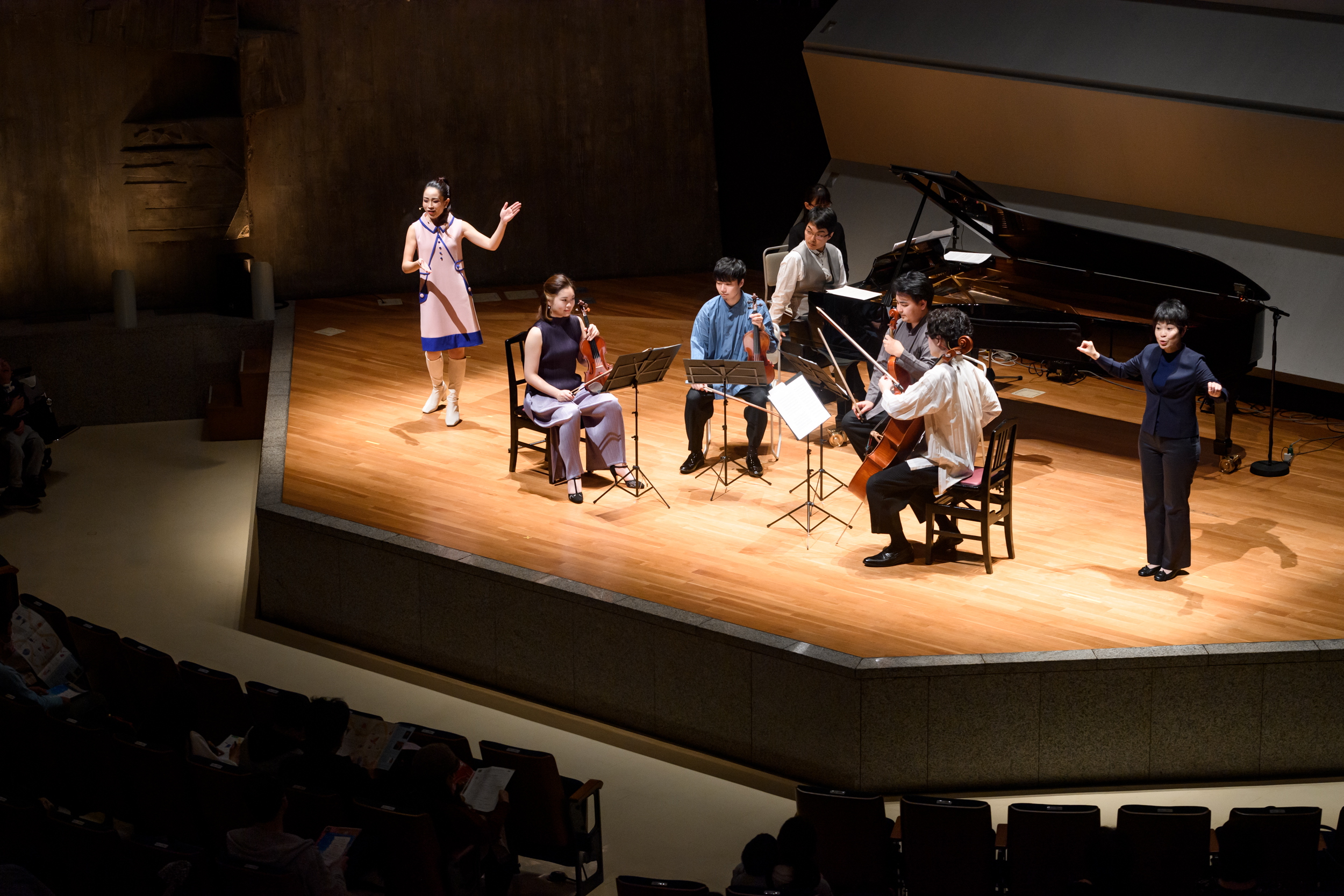
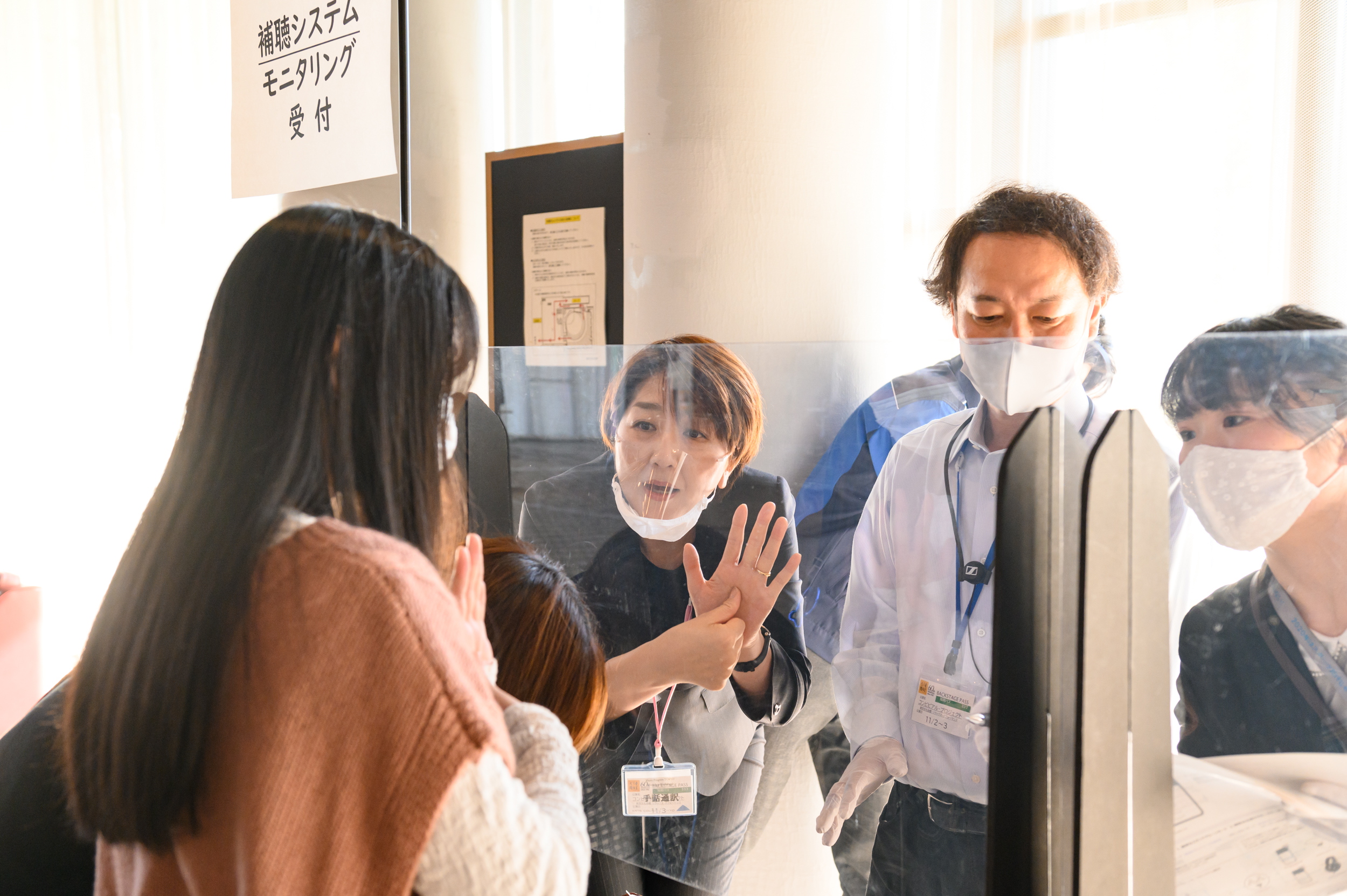
Music Workshops at facilities for senior citizens and social welfare organizations
Since 2016, we have been delivering music workshops in Tokyo in partnership with facilities for senior citizens, social welfare organizations and other professional institutions with the aim of realizing a pluralistic symbiotic society through the arts.
Depending on the participants and needs of the facilities and organizations, we have developed the workshops by tailoring the music workshop programs we have previously conducted at the Tokyo Bunka Kaikan.
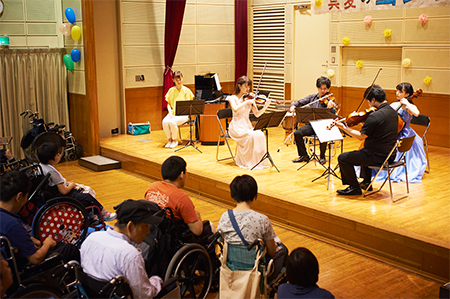
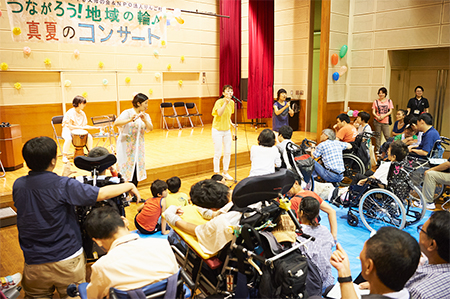
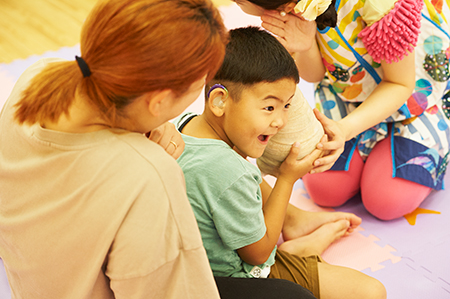
YouTube
- Tokyo Bunka Kaikan Music Workshops for Senior Citizens
- * The video contains real sound works created by senior citizens at our improvisational music making workshops.
Lectures and training for the art activities leading to social inclusion
There is a growing need and increasing attention for activities that spotlight the inclusivity of arts in recent years. Such movement introduced legislation for promoting artistic activities for people with disabilities. On the other hand, we, as practitioners of “art activities leading to social inclusion,” are still trying to figure out how to handle those activities and how to deliver them with the highest quality.
The Tokyo Bunka Kaikan, therefore, launched lectures to sort out the points we need to understand on practicing “art activities leading to social inclusion” and offer professional training for musicians. Focusing on performing arts such as music and dance. Aiming to achieve a higher quality of social inclusive art activities, cutting edge artists thus provide us with expert knowledge, know-how, and various case studies and theories based on practices.
Lectures & Discussions, Forums, and more
- Season 2019 Forum “Social Inclusion and Music in an Aged Society”
- Season 2019 Lecture “Dementia and Art; Music and Care”
- Season 2020 Forum for Art Activities leading to Social Inclusion—Think about Socially Inclusive Art Activities in the time of Corona
- Season 2021 Open Lectures & Discussions Vol.1 “Sound Spaces that we design with deaf and hard-of-hearing people—The Accessibility to Musical Experiences”
- Season 2021 Open Lectures & Discussions Vol.2 “Music and Dementia Care”
- Season 2022 Open Lectures & Discussions Vol.3 Interactive music making for people living with dementia—Manchester Camerata’s “Music in Mind”
- Season 2022 Open Lectures & Discussions Vol.4 “Music and Creative Ageing—Reflecting on working with Manchester Camerata”
Training, Workshops, and more
- Season 2019 Professional Training for Musicians
- Season 2019 Professional Training for Musicians with the Bournemouth Symphony Orchestra
- Season 2021 Professional Training for Musicians
Training 1. Visual Thinking Strategies for Music Listening—The communication skill to deepen the music audience’s way of “listening” - Season 2021 Professional Training for Musicians
Training 2. Creating music without a score—Storymaking with diverse people - Season 2021 Live Experience Demo of Accessible Devices for Music Appreciation for Production Crew Members—Aiming to Create Accessible Stage Shows
- Season 2022 Professional Training for Musicians
3. How to build musical language—Introduction to “Music in Mind”: a person-centered approach to interactive music making - Season 2022 Professional Training for Musicians
4. How to build musical language—“Music in Mind” in practice: a person-centered approach to interactive music making - Season 2022 Music in Mind—Music workshop for people living with dementia and their carers
We believe that arts and cultural activities can improve people’s wellbeing and quality of life. They can realize the symbiotic society as well. From this point of view, we have also been researching and studying about the roles and effects that arts and cultural activities need to achieve. The current situation, where culture, arts, health, and wellbeing are interrelated is also what we want to grasp. These studies will help facilitate professional development and personnel assignments to actual, meaningful activities.
In the 2019 season, we commissioned Kyushu University (NAKAMURA Mia [Associate Professor, Graduate School of Design, Kyushu University]) to research and analyze the fieldwork focusing on the Tokyo Bunka Kaikan. Interviews were then conducted to the specialized organizations and practitioners of arts and cultural activities. The research led to the following results: 1) verbalization of the significance of workshops and roles of workshop leaders that have not been told from experiences 2) clarification of the importance and tasks of the Tokyo Bunka Kaikan Workshop Leader Skills Training Program.
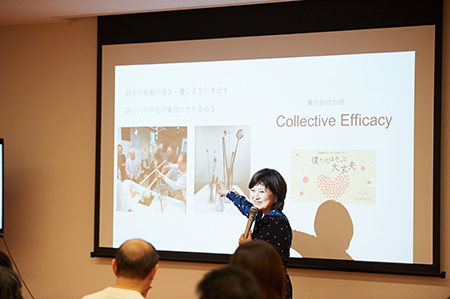
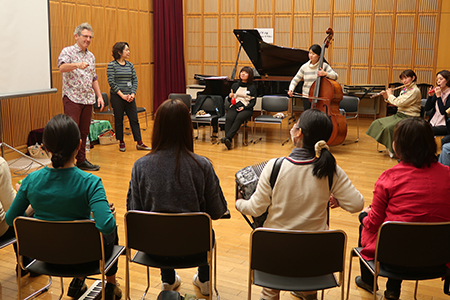
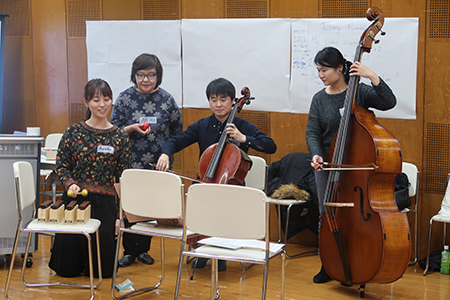
Validation of music workshops for senior citizens
Season 2018 Validation of music workshops for senior citizens: Reporting session
The validation of the year 2018’s music workshops for senior citizens was carried out together with KUSAKA Nahoko (professor at Doshisha Women’s College of Liberal Arts), a researcher specializing in geriatric psychology. In the validation, ten workshops were held at two facilities for senior citizens within Tokyo, from December 2018 through February 2019. The validation of the following points was carried out with the aim of obtaining hints for ongoing program development, at the same time as striving to derive new knowledge:
- 1. Communication through the activities of music workshops for senior citizens
- 2. Program design for music workshops in which senior citizens become creative agents
Season 2019 Validation of music workshops for senior citizens: Reporting session
In the 2019 season, we carried out a validation of programs for active seniors together with KUSAKA Nahoko (professor at Doshisha Women’s College of Liberal Arts), a researcher specializing in the psychology of the elderly, in order to examine concrete methods of program creation and the originality of “Shall we sing?” of the Tokyo Bunka Kaikan Music Workshops (aimed at those over 50).
In November 2019, “Shall we sing?” were held at facilities within the metropolis, and a survey was carried out through interviews. The validation looked at the following three areas:
- 1. Measurement of the effects of workshops in which participants move to music
- 2. Program creation for music workshops aimed at active seniors (e.g. the creation of a structure that attracts those who are not in the habit of participating in cultural activities)
- 3. The social meaning of music workshops in which senior citizens play the central role.
Season 2020 Validation of music workshops for senior citizens: Reporting session
In the 2020 season, we have revised the workshop “Shall we sing?” based on the evidence of the validation in 2019 to provide more fulfilling workshops. At this session, we will share the process of updating the workshop. From June to September 2020, three online revision planning meetings, the revised workshop demonstration, and a review meeting took place.
KUSAKA Nahoko, a researcher specializing in geriatric psychology, and the Tokyo Bunka Kaikan Workshop Leaders continued discussions, sorting out and revising the program designs of “Shall we sing?” This process has led them to examine how they can develop a music workshop that stimulates the elderly’s willingness to participate proactively in cultural activities. Such music workshop also encourages social participation and the creation of things that make one’s life worthwhile, which are “ikigai”, for the elderly.
In the 2022 season, we dug deeper into the program design of Tokyo Bunka Kaikan Music Workshop “Shall we sing?” which had been revised in the 2020 season. As we worked on it, we kept in mind the frailty and social isolation issues faced by older people since the situation worsened during the COVID-19 pandemic. While it is necessary for older people to stay motivated for proactive social activities and participation to reduce their frailty, an environment or place where older people can feel a loose connection with others helps ease loneliness. Therefore, in addition to the on-site workshop, we combined tools such as the free communication app LINE and video streaming for participants to explore methods to let older people feel a loose connection, keeping “individual well-being” simultaneously.
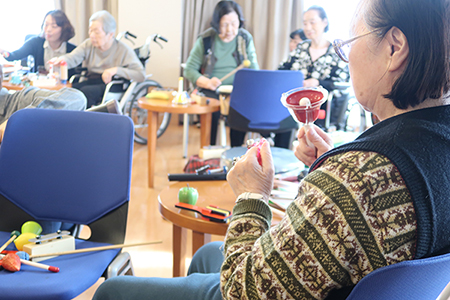
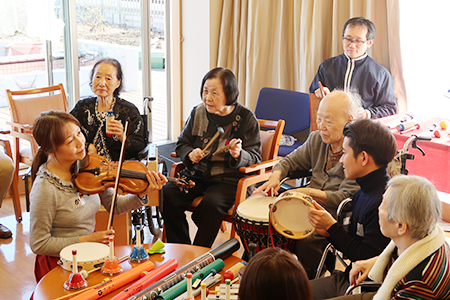
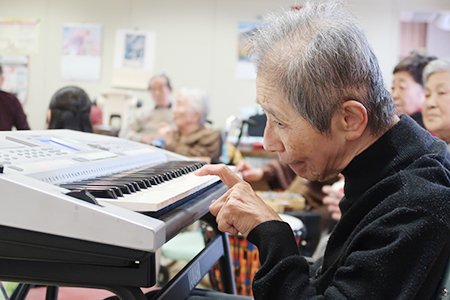
Tokyo Bunka Kaikan 60th Anniversary Forum
The global outbreak of the novel coronavirus disease (COVID-19), which began in February 2020, has affected our way of lifestyles and our values in many ways. It has forced many venues and arts organizations to suspend their activities, and it has also forced us to change our way of creating and experiencing the arts. What have we, as cultural institutions and arts organizations, learned and gained in a time of COVID?
This virtual forum explored the impact of COVID on cultural institutions and arts organizations with a focus on examples from Europe, asked why culture and the arts should be accessible to all, and why cultural institutions and arts organizations should remain more inclusive and open.
Technology with Music “Blinkin’ Beats—The World of Rhythms You Doodle with Sounds and Light”
From June through September 2021, five Tokyo Bunka Kaikan Music Workshop Leaders developed a workshop program by merging technology and music, collaborating with the musical interface scientist KANEBAKO Junichi. The workshop took place in September.
Mr.Kanebako is advocating “accessible musical instruments” as a developer of installations and devices which everyone, regardless of disabilities, can enjoy together. At this workshop, we featured the installation “ratatap” created by Mr.Kanebako and his cooperators. A character, “Otodama-kun,” pops out from which vibrations of sounds are made, not requiring the users to hear the actual sounds. Through this installation, we aimed to deliver a program where the participants can share the joy of playing sounds together by watching various Otodama-kun: not only the one appearing from the sound a participant made but also the others coming out of the sound made by the other participants.
Here is a review from a participant with hearing disabilities: “Previously, I couldn’t make sense of communicating through music, but today I feel like understanding it for the first time by joining this workshop.”
